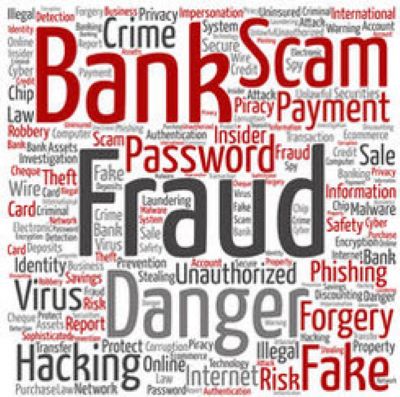Bank fraud is usually thought of as something that happens among high-ranking white collar criminals in the financial industries – not something that occurs among everyday people among the general public. Technically, however, acts of bank fraud can be committed by anybody with any kind of access to a financial institution.
Bank fraud happens when a person (or group) attempts to obtain money or property from a Federally insured banking institution through fraudulent means. A person can also commit bank fraud by knowingly participating in a scheme against a bank through materially false statements, representations, or pretenses. For example, falsifying income or assets on a loan application to obtain financing they would not otherwise qualify for could be an act of bank fraud. Issuing checks without the funds to back them up when cashed can also fall under the bank fraud umbrella.
Bank fraud is punishable as a Third Degree Felony under Florida law – which can include penalties of up to 30 years in prison, along with fines and restitution. It is also a Federal offense since the banks are Federally insured institutions. The Federal charges can be brought under 18 U.S.C. Sec. 1344, which also carries a potential punishment of up to 30 years in prison, and up to $1 million in fines.
A conviction of bank fraud under Federal or State law – or both – carries not only the specter of jail time but also potentially career-ending reputational harm. A person or business facing allegations of bank fraud must fight the charges as vigorously as possible. Preferably, this will be done with the help of a skilled Florida bank fraud defense attorney with experience in this area.
Elements of Bank Fraud
Even if the allegations seem damaging, the prosecution still must prove beyond a reasonable doubt the following elements to support a bank fraud charge:
- That the offender knowingly and intentionally executed a scheme through false pretenses to defraud a financial institution and obtain money, property, or other assets.
- The false pretenses or misrepresentations were “material” – meaning they bore some impact on the decision to lend or transfer assets. (Entering an incorrect address or phone number, might not be characterized as being material. Intentionally entering false income or asset information would be a material fact, however.)
- That the defendant intended to defraud the institution.
- That the financial institution was Federally insured. (For Federal bank fraud charges.)
Potential Defenses to Bank Fraud Allegations
- Lack of Knowledge. The government must prove the defendant “knowingly” carried out (or attempted) a “scheme to defraud”. There is a difference between unintentionally including incorrect figures that resulted in a higher loan approval, and a plan to submit falsified information to obtain funds without the intent to pay them back.
- Lack of a Material Fact. A material fact is something that a reasonable person would rely on to make a decision of some consequence. Entering information about income or assets that purports to show you can pay back a loan, for example, is a material fact. Signing and issuing a check to someone else is a material fact. Misspelling the name of a personal reference on an application, however, or things of that nature may not be “material facts”.
- Lack of Intent to Defraud, or Intent to Cause Loss or Injury. A bank-related mistake can cause harm or financial loss to another person or entity. This alone could make a person liable under another criminal charge. To prove the crime of fraud, however, the prosecution must show the defendant intended to defraud another, and also intended to cause a loss by taking an ill-gotten gain for themselves.
- The Bank Was Not a “Federally Insured” Financial Institution. This may seem unusual but it is an essential element of a Federal bank fraud charge. Attempts at fraud against an FDIC-insured institution bring the crime subject to charges under 18 U.S.C. Sec. 1344. Otherwise only State criminal charges may be applicable.
When to Call a Tampa Criminal Defense Attorney
Any potential investigation or charge of bank fraud demands an aggressive response from an experienced Florida fraud defense attorney. Whether the case is brought by State or Federal agencies. You absolutely cannot settle for less when it comes to your legal defense.
At Trombley & Hanes, our Tampa white collar crime lawyers have handled many varieties of fraud defense cases and know how to go toe-to-toe with prosecutors on even the most serious charges. Getting the facts out and protecting your rights and interests are crucial parts of our job. If you face any type of investigation or charge of bank fraud, don’t hesitate to call our office at 813-229-7918, or visit our firm online today.
Source:
leg.state.fl.us/statutes/index.cfm?App_mode=Display_Statute&Search_String=&URL=0600-0699/0655/Sections/0655.0322.html





